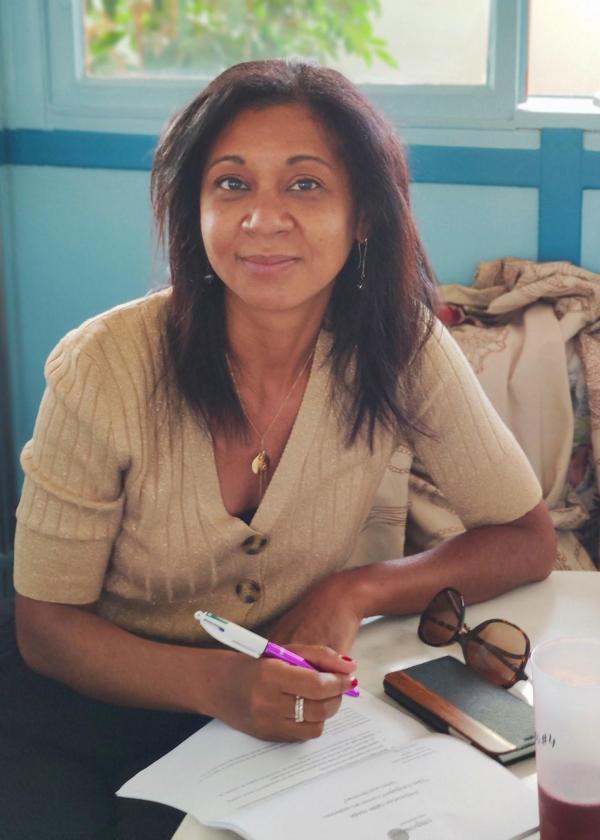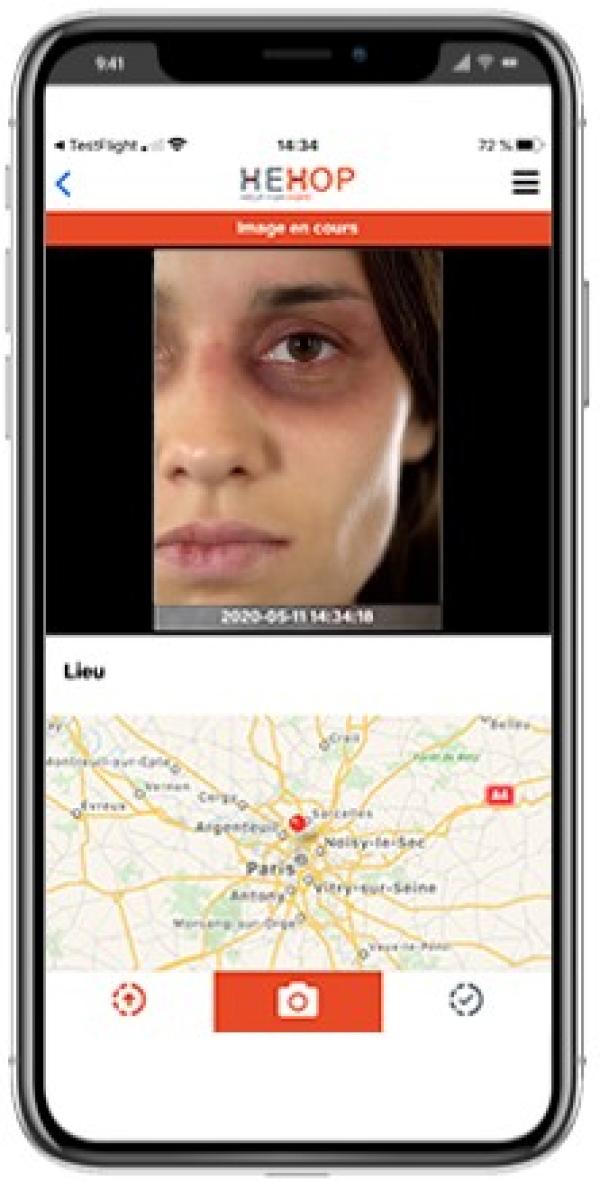The HeHop domestic violence evidence app records assaults using blockchain and boosts the chance of prosecution in court
Sandy Beky was listening to the general counsel from the Paris Court of Appeals talk about domestic abuse at a conference in the summer of 2018. What she heard shocked her.
Victims suffer additional trauma, the general counsel said, when their assailants are not sentenced, due to lack of evidence. Not many abusers are even prosecuted, the counsel said. “That’s how the idea for HeHop came to my mind,” Sandy says.
HeHop (short for Help for Hope) is a smartphone app that allows victims of abuse or violence to take photos or record audio and video files, which are then encrypted and stored in a special blockchain database. This makes those files tamper-proof and potentially admissible as evidence in a court case.
“The idea was really to be able to enable victims to capture data that could then be turned into legal evidence, because the validity, the authenticity, could not be questioned,” she says.
One in three women have experienced some kind of domestic abuse or violence, and only 14 percent of these incidents are reported to the police.

Sandy Beky’s mobile app helps victims produce evidence if abuse cases go to court.
Unique use of blockchain
One look at Sandy’s CV tells you she is not afraid of taking on challenges. She grew up in Madagascar, but lived in Belgium, Italy, the United Kingdom and the United States. She is the founder of Kyosei Solutions Lab, a Paris startup that conducts workshops and training on innovative models of management and leadership.
What Sandy was seeking to do with the new app was unusual. Blockchain is the basis of bitcoin, and it’s also being used to record supply-chain transactions and improve large-scale business operations. She started seeking people from within her network who could help with her plan. Eventually she found Marc Couloigner, a French blockchain expert who was enthusiastic about the idea of HeHop. He signed on as the cofounder of the Paris-based non-profit organisation, and together with a small team, they developed the app.
The app was made available in June 2020. It’s free to use and is available only in France at this point.
Several municipalities and police departments in France have been using the HeHop app in pilot projects. About 700 people have downloaded the app and more than 3,500 files have been uploaded to the blockchain.
HeHop won first prize in the 2019 Social Innovation Tournament, which is organised by the European Investment Bank Institute to help companies that are offering creative responses to societal problems.
Planned upgrades
The app allows a person to record up to 20 minutes of audio and 5 minutes of video, as well as still photos. As soon as the recording stops, the files are automatically uploaded to the blockchain database. The limits were necessary to make sure the files could be uploaded properly, Sandy says. Users can restart the app to record again immediately afterwards.
The HeHop team is working on improvements that would allow a user to remotely activate the app, either through a keyword or a remote button that could be in a pocket. During a conflict, it would be safer and easier to activate the app without alerting the abuser.

The HeHop app can capture evidence that might be admissible in court.
HeHop relies on governmental and private sponsors in France to support its efforts. HeHop is working on finding sponsors in several other countries and hopes to expand the app’s availability soon, perhaps to Spain, the United Kingdom and Switzerland.
A key element of HeHop is helping end the cycle of abuse by creating consequences for violence. Sandy says HeHop is not there to provide psychological support, but the app does have an important role to play in assisting victims.
“The application can help in that, if they have proper evidence, then at least they know they have their credibility and that their stories are not going to be questioned,” she says.
“We have one victim who had been filing charges for several years only for them to be dismissed,” Sandy adds. “Last November she produced an audio file that had been captured with HeHop, and that evidence made it possible for the case to be prosecuted, and it’s under prosecution at the moment.”
More information on HeHop can be found on the company’s website, facebook and twitter.
